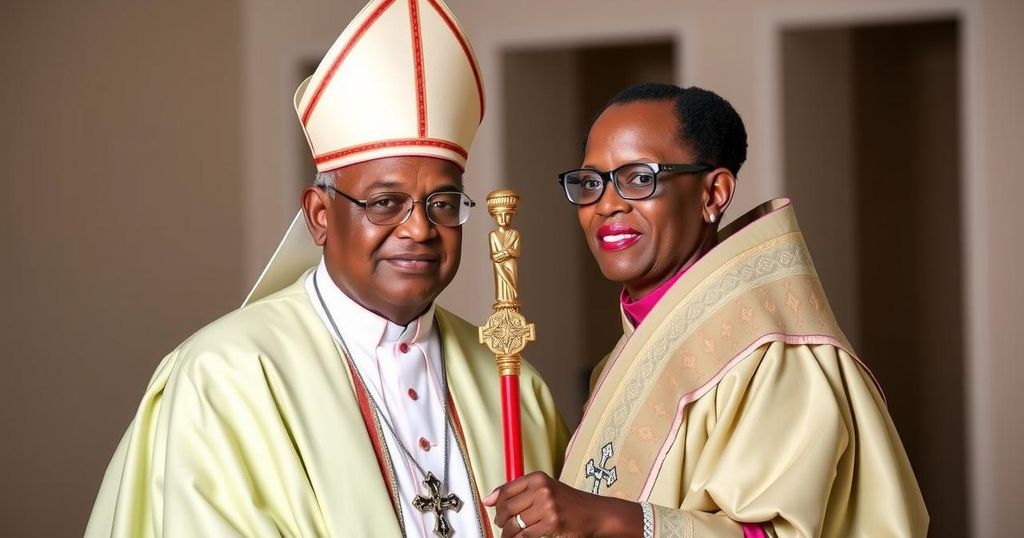Mozambique’s Catholic Bishops commend the solidarity shown by their peers in Angola and São Tomé and Príncipe through a prayer initiative aimed at promoting peace as violence escalates following controversial electoral results. The statement from the bishops highlights the importance of unity and spiritual support during this crisis, especially in protecting vulnerable populations affected by the turmoil.
The Catholic Bishops of Mozambique have expressed deep gratitude for the solidarity shown by their colleagues in Angola and São Tomé and Príncipe, particularly after the recent three-day prayer initiative conducted for peace in Mozambique. This event, organized by the Bishops’ Conference of Angola and São Tomé and Príncipe (CEAST), is seen as a beacon of hope amidst the ongoing violence plaguing Mozambique, significantly aggravated by the recent electoral disputes following the October 9 presidential elections. In a statement released by the Episcopal Conference of Mozambique (CEM), they acknowledged the prayers as vital expressions of unity during these trying times, which have left many in anguish and uncertainty.
The bishops emphasized the impact of widespread violence, which has escalated both before and after the presidential election results announced by Mozambique’s electoral commission, declaring the ruling Frelimo party’s continued governance. Opposition groups have vehemently disputed these results, alleging electoral fraud, leading to widespread protests and tragic confrontations with law enforcement, resulting in numerous casualties. The situation has led to increased international concern, with calls for prayer and reflection on the human toll of this crisis, especially on vulnerable populations.
Fr. Celestino Epalanga, during a ‘Vigil for Peace’ held on January 3, articulated the widespread consequences of such violence, asserting,
“Violence breeds more violence, causing suffering, anguish, and forced migration. Violence is not the remedy for our fractured world.”
He further urged the people of Angola to empathize with the suffering communities of Mozambique, emphasizing the power of prayer and spiritual solidarity in confronting adversity.
While Mozambique continues to grapple with the implications of its electoral outcome and the societal unrest it has sparked, the gestures of solidarity from neighboring nations offer a glimmer of hope and a reminder of the importance of communal support in times of crisis. The reinstatement of dialogue and non-violence remains crucial as the country seeks to navigate its current turmoil and foster lasting peace.
The article addresses the situation in Mozambique following the controversial October 9 presidential elections, which have resulted in significant violence and unrest. The Catholic Bishops of Mozambique have publicly recognized the prayers and support from their counterparts in Angola and São Tomé and Príncipe, which were specifically directed towards restoring peace in Mozambique. The backdrop of this solidarity includes allegations of electoral fraud and subsequent protests, leading to casualties. The role of the Catholic Church in advocating for peace amid these challenges is emphasized, highlighting the importance of spiritual solidarity and non-violent resolutions.
In conclusion, the solidarity expressed by the Catholic Bishops of Angola and São Tomé and Príncipe provides a hopeful testament to the unity of faith communities in the face of Mozambique’s turmoil. This prayer initiative not merely serves as a call for peace but underlines the shared struggles of marginalized individuals amid political unrest. Furthermore, the emphasis on non-violence and communal prayers indicates a path towards healing and hope for Mozambique’s future amid challenges that threaten its stability.
Original Source: www.aciafrica.org






